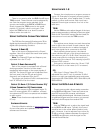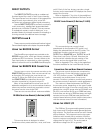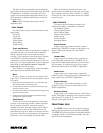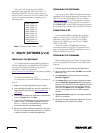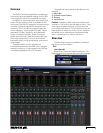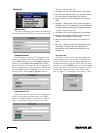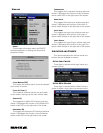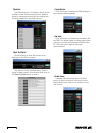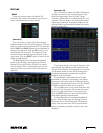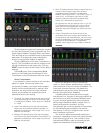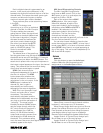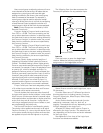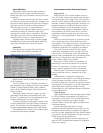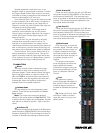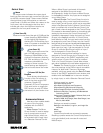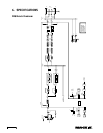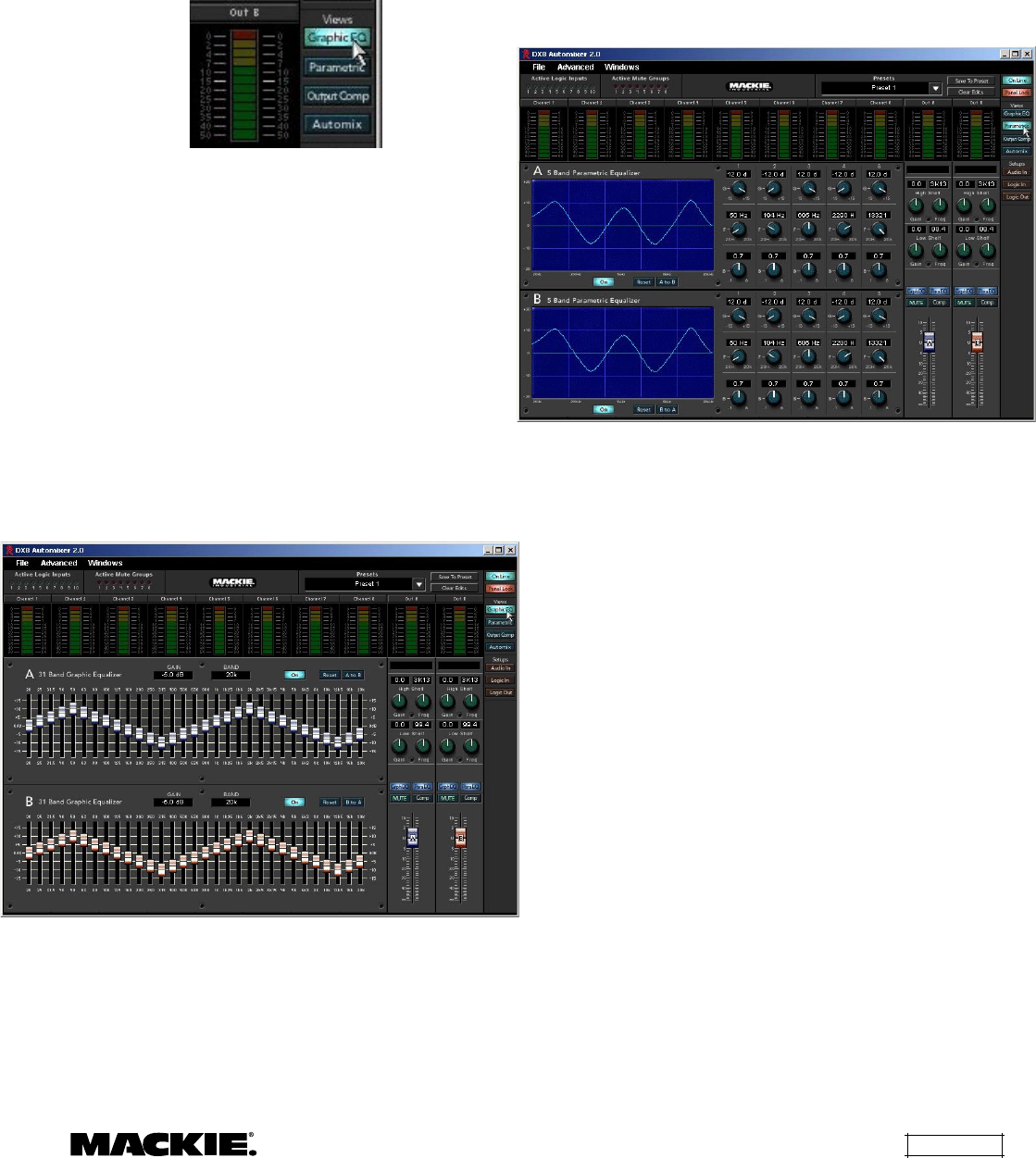
DX8 – 23
Buttons
Views
These four buttons open the Graphic EQ,
Parametric EQ, Output Compressor, and Automix
views, overlaid across the input section.
Graphic EQ
Click this button to open the 31-Band Graphic
Equalizer window for the A and B outputs. Click and
drag on a slider knob to adjust the EQ. The selected
band’s
GAIN
and
BAND
(frequency) are displayed at
the top of the window. Click the
ON
button to turn
each Graphic EQ on and off. The Graphic EQ can
also be turned on and off with the buttons on the
output strip. Click the
RESET
button to return all the
sliders to 0 dB (center).
The
A to B
button (and corresponding
B to A
button on the B side) copy the settings of the A
Graphic EQ to the B Graphic EQ (and vice versa).
Use the Graphic EQ to make adjustments for the
response of the room and smooth the frequency
response.
Parametric EQ
Click this button to open the 5-Band Parametric
Equalizer window for the A and B outputs. Each
band has three knobs: Gain (±15 dB), Center
Frequency (20Hz-20kHz), and Bandwidth (0.1 to 6
octaves). Click and drag on the individual knobs to
adjust each parameter. A graphical display on the
left-hand side of the window indicates the current
response of the EQ.
If two bands are set to the same frequency, the
gain settings are additive and the response curve
may go off the display. The response is not limited
to the display scale, and the 32-bit floating-point
processors accurately calculate the combined
response of all five bands.
The bandwidth is calculated as the 1/2 gain
bandwidth in octaves. For example, if the center
frequency is 1kHz with a gain of 10 dB and 2 octave
bandwidth, the response is down to 5 dB (1/2 gain)
at 500Hz and 2kHz (a span of two octaves).
Click the
ON
button to turn each Parametric EQ
on and off. The Parametric EQ can also be turned
on and off with the buttons on the output strip.
Click the
RESET
button to return all the knobs to
their default settings (flat response).
The
A to B
button (and corresponding
B to A
button on the B side) copy the settings of the A
Parametric EQ to the B Parametric EQ (and vice
versa). Use the Parametric EQ to help eliminate
specific troublesome peaks and dips in the room
response.



